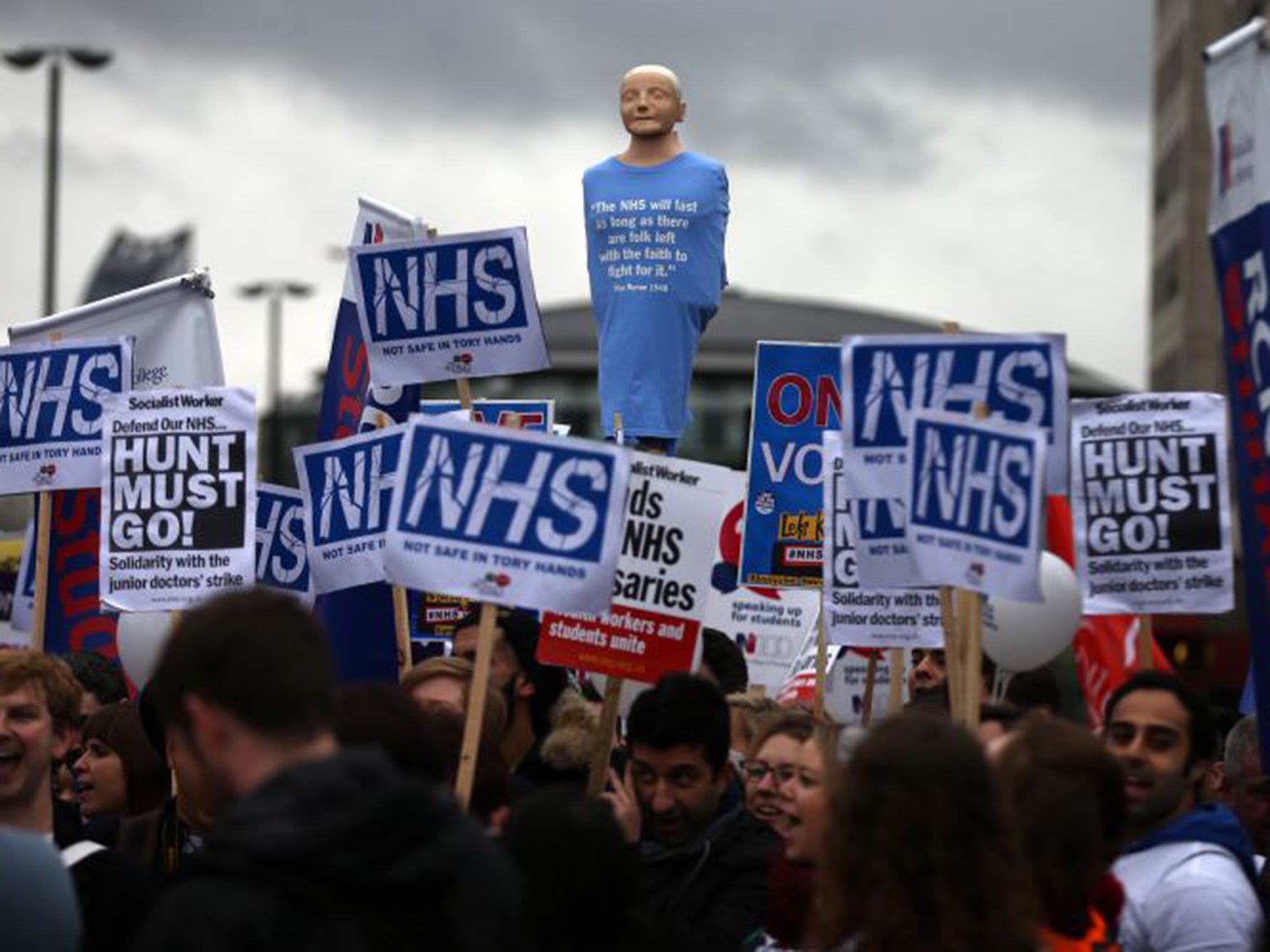Junior doctors' strike: Firefighters, bakers and civil servants to join picket line
Government urges suspension of the junior doctors’ strike, in the interests of patients

Your support helps us to tell the story
From reproductive rights to climate change to Big Tech, The Independent is on the ground when the story is developing. Whether it's investigating the financials of Elon Musk's pro-Trump PAC or producing our latest documentary, 'The A Word', which shines a light on the American women fighting for reproductive rights, we know how important it is to parse out the facts from the messaging.
At such a critical moment in US history, we need reporters on the ground. Your donation allows us to keep sending journalists to speak to both sides of the story.
The Independent is trusted by Americans across the entire political spectrum. And unlike many other quality news outlets, we choose not to lock Americans out of our reporting and analysis with paywalls. We believe quality journalism should be available to everyone, paid for by those who can afford it.
Your support makes all the difference.Firefighters, bakers and civil servants are planning to join junior doctors on the picket line when they strike over pay and conditions on 12 January.
Matt Wrack, general secretary at the Fire Brigades Union, said: “Our people who have the day off work will go along to the pickets in support of junior doctors.” Ian Hodson, president at the Bakers, Food and Allied Workers Union, said he “will stand with our junior doctors”.
The Public and Commercial Services Union, which represents civil servants, has long supported the junior doctors’ strike and previously vowed to join them on their picket of St Thomas’ hospital in central London last month. That strike was cancelled, but the action on 12 January looks set to go ahead after talks between the British Medical Association and the Health Secretary, Jeremy Hunt, collapsed last week.
About 26,000 junior doctors voted in favour of a walkout after Mr Hunt proposed reforms to create a seven-day NHS. Junior doctors are worried that the proposals will put more stress on the profession at the expense of patient safety.
Mr Hunt claimed last week that of the 16 areas of disagreement only one, involving pay and unsocial hours, had not been resolved.
A BMA spokesperson said: “It is simply not true that there remains only one area of contention. The Government has failed to fully address junior doctors’ concerns ... The Government’s proposals do not go far enough to prevent junior doctors working unsafe hours and would leave those working the most unsocial hours worst off, affecting doctors in our A&Es and other areas of medicine that are already struggling to recruit and retain staff.
“No junior doctor takes the decision to take industrial action lightly and we deeply regret the disruption that it will cause patients.”
A Department of Health spokesman stated: “The BMA said in December that significant ground had been made and there were only ‘a couple of absolute areas of disagreement’. Since then, the Government has put forward a substantive proposal in talks and also engaged Acas [the dispute resolution organisation]. Industrial action helps no one and risks harming patients, so we urge the BMA to suspend strikes and ... help broker a deal through dialogue with us.”
Strike plan
How will the strike by junior doctors affect health services?
During the first 24-hour strike, due to start on 12 January at 8am, junior doctors will provide “emergency care only”. This should mean minimal disruption to A&E departments and urgent surgery services.
The same level of care will be provided during the second walkout which, unless agreement is reached, begins at 8am on Tuesday 26 January and will last for 48 hours.
The brunt will be borne by those with appointments on the strike days. Most planned operations will be cancelled and reorganised.
Assuming no agreement has been reached by Wednesday 10 February, junior doctors will hold a full stoppage of all services for nine hours.
GP services will be unaffected throughout the strike, as will the non-emergency hotline 111
Lucy White
Join our commenting forum
Join thought-provoking conversations, follow other Independent readers and see their replies
Comments